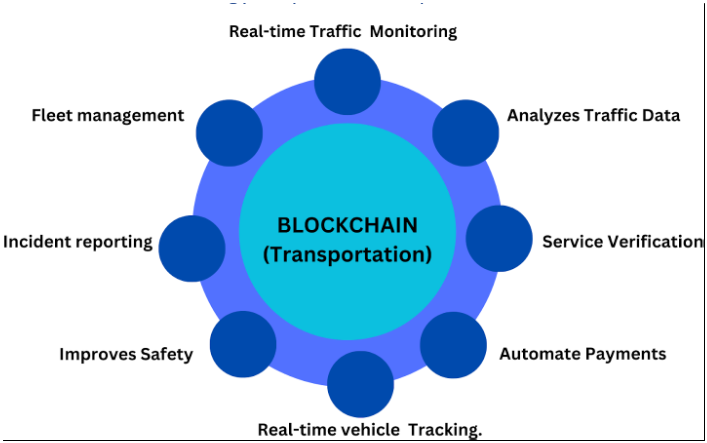The Road Ahead: How Blockchain Is Changing Transportation
A detailed investigation of the Transportation Blockchain Technology Market using 2022 as the base year, including insights from 2017 to 2021 and a projection from 2023 to 2027. Forecasts indicate that the market would see significant development, with a predicted acceleration of 39.78% CAGR, eventually reaching USD 2.23 billion. Its present market structure is fragmented, and it is projected to increase by 37.72% year from 2022 to 2023. Looking at the market by region, we find that North America accounts for 37% of the total, followed by Europe, Asia-Pacific, South America, and the MENA region. The United States, China, Japan, Germany, and Switzerland are some of the important nations here. Notable firms in the competitive environment include Accenture Plc, Amazon.com Inc., Microsoft Corp., SAP SE, and many more (Technavio, 2023).
What is the Role of Blockchain in transportation?
Earlier eras of transportation depended on less sophisticated technology, paper records, and manual operations. Thanks to the use of cutting-edge technology, our transport industry has progressed. By streamlining fleet management, optimizing routes, and monitoring traffic incidents in real-time, blockchain technology might revolutionize the way transportation businesses run their operations. Its security features and built-in transparency make it very resistant to fraud and other security issues. Additionally, blockchain improves authentication and service monitoring, guaranteeing happy endings for everyone.
Billing and payment systems are made easier, which speeds up transactions and minimizes costs. Businesses may benefit from blockchain technology in trip planning and delivery method selection due to the ease with which vehicles’ whereabouts can be tracked. From the first point of contact with the customer all the way until the conclusion of the journey, it offers a reliable method of data verification.
How blockchain technology helps the transportation sector?

When it comes to improving several crucial parts of the transportation sector’s transition, blockchain technology is vital. By assigning distinct digital identifiers recorded on the blockchain, it enables effective fleet management by offering a transparent and safe way to track the use, maintenance, and performance of vehicle fleets. In addition, it helps with effective incident reporting and resolution by making sure that real-time traffic event monitoring is accurate and transparent. With blockchain’s ability to analyze traffic data, simplify service verification, and enforce agreed-upon standards, route optimisation, authentication, and service tracking are all significantly enhanced. Automation of payments, reduction of transaction costs, and minimization of delays are all benefits of smart contracts that contribute to more efficient billing and payment operations.
Important for keeping control on shipments, deliveries, and passengers’ safety, blockchain technology improves the safety and efficiency of real-time vehicle movement tracking. Transport services are made more reliable and dispute-free by using blockchain technology, which provides an immutable record of all transactions and ensures that data is accurate at every stage. As a result, any business may save expenses, boost efficiency, and ensure the dependability of its transportation services.
What is the future of transportation using blockchain?
In the future of transportation, the vital role of blockchain will be shaped by the cooperation of industry stakeholders, effective laws, and constant technical improvements. A more transparent, efficient, and secure transportation network is what we can anticipate when the industry adopts this cutting-edge technology.